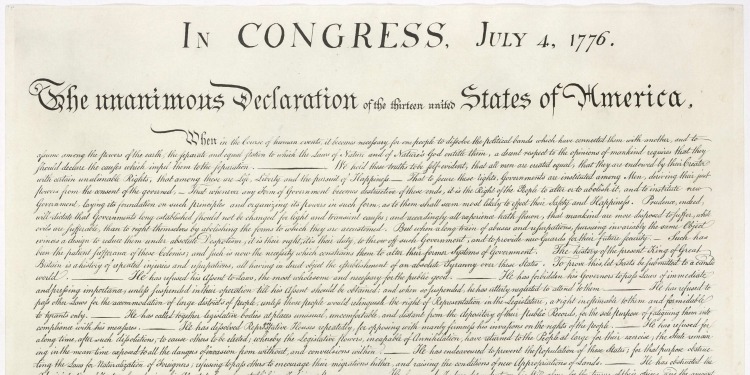What’s Hebrew for ˜When in the Course of Human Events’?
The Fellowship | September 15, 2016

Those of us who stand for democracy and freedom are well aware of the US-Israel relations and shared values of the United States and the Jewish state. However, The New York Times’ Jodi Rudoren educates us on some shared similarities between the two allies’ founding documents:
US-Israel relations between Israeli and American officials often speak of the two countries’ shared values. It turns out that early drafts of the Jewish state’s founding document borrowed liberally from the American Declaration of Independence.
They were written in English by a little-known, Ukrainian-born lawyer, Mordechai Beham, who confided to his in-laws over lunch in Tel Aviv on Saturday, April 24, 1948, that he had been enlisted to write the defining manifesto and had no idea where to begin. After several hours in the private library of an American rabbi who lived nearby, Mr. Beham, 33, emerged with a document that began with Thomas Jefferson’s famous phrase “when in the course of human events.” He also cribbed from the Bible’s Book of Deuteronomy, the English Bill of Rights and the United Nations’ partition plan for Palestine.
Only a few of Jefferson’s words survived in the final version read out by David Ben-Gurion three weeks and a dozen drafts later. But Yoram Shachar, a law professor at the Interdisciplinary Center in Herzliya, Israel, argued in a 2009 paper that the American influence was nonetheless profound, noting that God appears in both documents’ concluding paragraphs…
